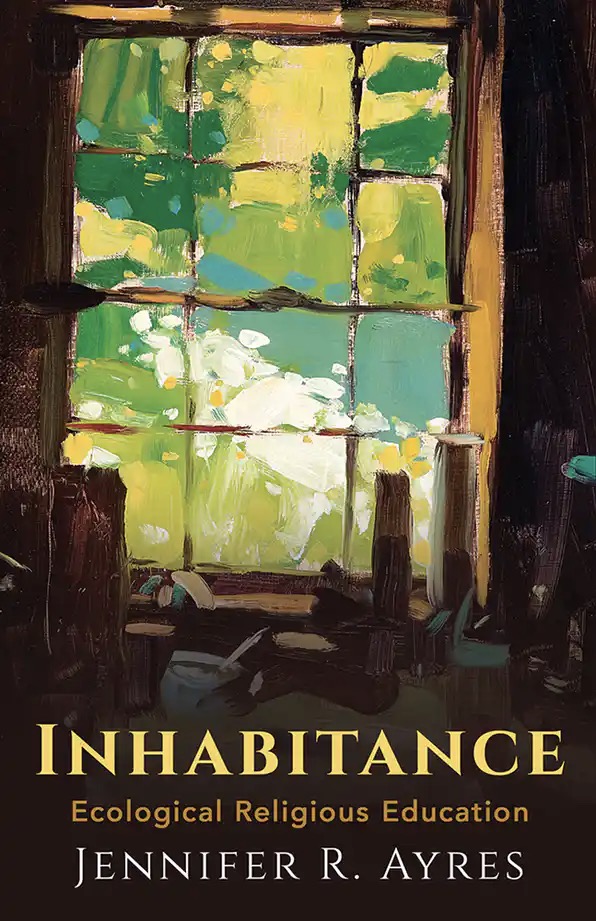ecology
Select an item by clicking its checkbox
On a day when the National Weather Service issued warnings about severe thunderstorms and cold temperatures accompanied by snow and ice, I received multiple emails from students expressing their emotional distress and difficulty in focusing on their learning within the classroom, attributing their distress to climate change. One student wrote “...
It was a spectacular morning on Emory’s verdant quad. The early October air was just offering the hint of crispness that announced the imminent arrival of fall. The grass, roped off for re-seeding (a detail some students thought revealed loving care for the soil and others thought revealed a ...
Reviewed by: Annie Lockhart-Gilroy, Phillips Theological Seminary
Date Reviewed: June 17, 2021
Date Reviewed: June 17, 2021
Like other creatures, human beings are inhabitants of their ecosystems. But are humans good inhabitants? According to Jennifer Ayres, the way of inhabitance is stubbornly elusive. The work of understanding, loving, and tending God’s world is constrained by patterns of alienation, exploitation, and systemic neglect and injustice.
Faced daily by evidence of ecological death and decay, Ayres determines that this important work of inhabitance is constantly threatened ...
Faced daily by evidence of ecological death and decay, Ayres determines that this important work of inhabitance is constantly threatened ...
Like other creatures, human beings are inhabitants of their ecosystems. But are humans good inhabitants? According to Jennifer Ayres, the way of inhabitance is stubbornly elusive. The work of understanding, loving, and tending God’s world is constrained by patterns of alienation, exploitation, and systemic neglect and injustice.
Faced daily by evidence of ecological death and decay, Ayres determines that this important work of inhabitance is constantly threatened by ecological despair. Ecological despair stems from alienation from the natural world, acute and generational grief resulting from loss of home places, and, for many, an overwhelming guilt at having been complicit in the planet’s suffering. In Inhabitance: Ecological Religious Education, Ayres proposes a solution to this increasing alienation: the way of inhabitance. Just as other animals live and thrive within their ecosystems, so do humans live in a habitat created, sustained, and loved by God. This God perpetually invites us to become better inhabitants.
Many religious communities already cultivate inhabitance as a way of life, work that they consider to be central to their deepest theological commitments. Inhabitance examines a diverse array of such practices that foster more intentional engagement with the particular places in which people live. Ecological religious education, Ayres demonstrates, nurtures a disposition of loving commitment toward God’s creation.
Inhabitance demands a willingness to love other beings and a willingness to courageously encounter the human and ecological suffering of the world and be fully present to that suffering. And even as humans live more lovingly, courageously, and attentively within their particular places, their lives are opened up to the deepest sources of human well-being—for when God’s world around us flourishes, so do we. (From the Publisher)
Faced daily by evidence of ecological death and decay, Ayres determines that this important work of inhabitance is constantly threatened by ecological despair. Ecological despair stems from alienation from the natural world, acute and generational grief resulting from loss of home places, and, for many, an overwhelming guilt at having been complicit in the planet’s suffering. In Inhabitance: Ecological Religious Education, Ayres proposes a solution to this increasing alienation: the way of inhabitance. Just as other animals live and thrive within their ecosystems, so do humans live in a habitat created, sustained, and loved by God. This God perpetually invites us to become better inhabitants.
Many religious communities already cultivate inhabitance as a way of life, work that they consider to be central to their deepest theological commitments. Inhabitance examines a diverse array of such practices that foster more intentional engagement with the particular places in which people live. Ecological religious education, Ayres demonstrates, nurtures a disposition of loving commitment toward God’s creation.
Inhabitance demands a willingness to love other beings and a willingness to courageously encounter the human and ecological suffering of the world and be fully present to that suffering. And even as humans live more lovingly, courageously, and attentively within their particular places, their lives are opened up to the deepest sources of human well-being—for when God’s world around us flourishes, so do we. (From the Publisher)


